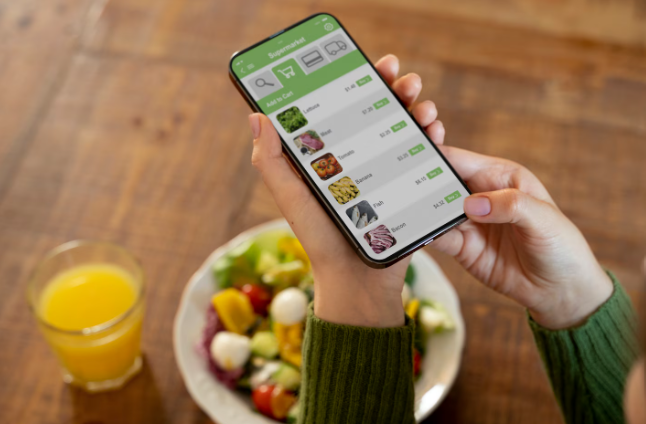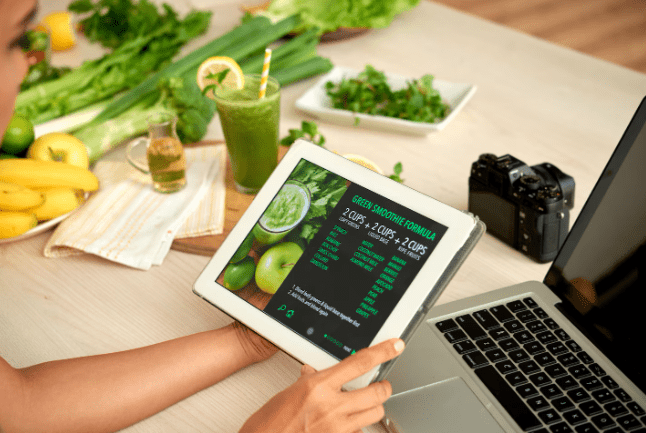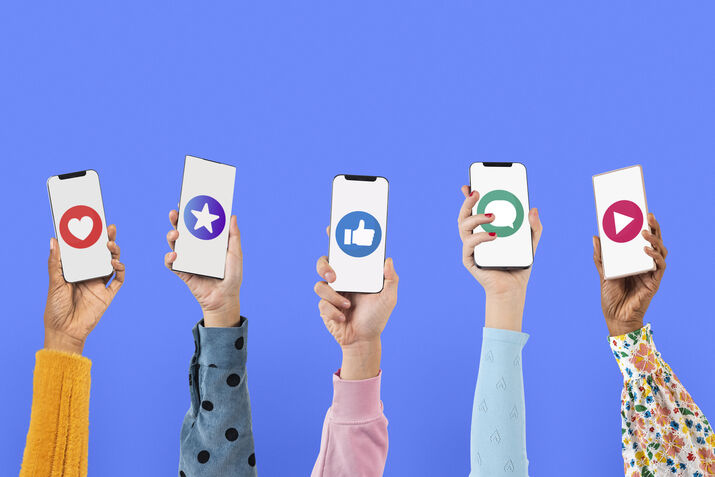Living in this fast-paced world, attaining a healthy diet and lifestyle is an uphill task. But thanks to technology, the very front of the revolution is now taken by AI Nutritionist Apps. These smart applications are a combination of artificial intelligence, personalized nutrition plans, and live tracking, enabling users to achieve their wellness goals faster than ever. For those in the U. S., where fast food is the norm and sitting all day is commonplace, an AI Nutritionist App can really make a difference.
What is an AI Nutritionist App?
An AI Nutritionist App would be an AI-powered software that examines a user’s eating habits, preferences, and health goals. Unlike standard nutrition apps with generic plans, AI apps use machine learning to provide personalized recommendations, track nutrients, and alert you to excess sugar or salt.
Moreover, many apps sync with fitness trackers, giving users a holistic view of their health and enabling data-driven nutrition choices daily.
How Does an AI Nutritionist App Work?
At their root, AI Nutritionist Apps work on sophisticated algorithms with constant data analysis. Here is a stepwise account of how these generally work:
- User Profile Setup: In this section, the user provides essential information such as age, weight, height, activity level, and dietary preferences.
- Goal Setting: Depending on whether the goal is weight loss, muscle gain, or health condition management, the AI will customize its recommendations accordingly.
- Data Analysis: While people eat, along with the data of calorie intake and balance of nutrients, this app is continuously analyzing the information through AI algorithms.
- Personalized Suggestions: Based on the analysis, the application then suggests meals, recommends portion sizes, and further advises on nutrient adjustments.
- Progress Tracking: Additionally, users can log their meals, monitor their macro- and micronutrient intake, and gradually track their progress toward their goals over time.
Also, many apps use natural language processing (NLP), so users can interact with the app via chat and receive recommendations in real time, making the experience interactive and engaging.
Benefits of Using an AI Nutritionist App
Moreover, the significant benefits that U.S. consumers can gain by embracing, rather than resisting, the AI Nutritionist App are:
- The nutrition plans are customized
Since everyone has unique nutritional needs, the AI app actively generates personalized meal plans and delivers real-time advice based on each user’s goals.
- Real-Time Feedback
While traditional nutrition specialists are capable of giving feedback only at prearranged consultations, an AI Nutritionist App performs much better: it offers feedback in real time. If an instance arises where the user is logging a meal composed of high sodium levels, the app has the capacity to recommend remedial actions and healthier alternatives instantaneously.
- On-the-Go and Accessible Economically
Chasing work schedules forces U.S. citizens from one appointment to another, leaving little time for repeated visits to a dietitian. With an AI Nutritionist App, the app brings consultations to your fingertips, enabling everyone to make healthier eating choices.
- Cheaper Option
Hiring a professional nutritionist can be costly. On the other hand, one could always buy an app with AI features that will provide similar data-driven advice for a fraction of the price.
- Integration with Health Technology
Other AI nutrition apps integrate with fitness trackers, smart scales, and wearable devices, allowing users to monitor their diet, exercise, and sleep simultaneously for a fully integrated approach to health.

Top Features One Should Look for in an AI Nutritionist App
When choosing an AI Nutritionist App, one should look for features that can make the app most effective:
- AI-Based Meal Planning: It creates customized meal plans based on your goals and preferences.
- Nutrient Tracking: Keeps track of vitamins, minerals, protein, carbs, and fats to make sure one has a balanced intake.
- Barcode Scanning: Users can scan packaged foods to know the nutrition information.
- Recipe Suggestions: These apps recommend recipes according to dietary goals, vegan, keto, or gluten-free alternatives.
- Progress Reports: Visual reports and trends present the user with a way of tracking progress over time.
- Integration with Fitness Apps: Syncs with wearable devices or fitness apps for a holistic health image.
How AI Nutritionist Apps Are Changing the Health Landscape in the U.S.
In the U.S., obesity, diabetes, and cardiovascular diseases pose serious nutrition-related problems. Fortunately, AI Nutritionist Apps actively tackle these issues by promoting healthier eating habits and offering users better tools to make informed decisions.
For example, if you struggle with calorie management, the app tracks your intake and suggests healthier alternatives. Similarly, if you have a chronic condition like diabetes, the app creates a meal plan to help stabilize your blood sugar levels.
In this debate, AI-led apps take a deep dive in giving Americans more tools for good health, thus having less dependence on medical interventions in the aftermath. Now that the nimble, personalized, and data-driven elements come together, managing nutrition becomes a smarter process than ever.
Real-Life Applications of an AI Nutritionist App
Here are a few examples of where the AI Nutritionist App can create a real impact:
- Weight Management: For weight loss or gain, users get individualized meals and snacks.
- Fitness Optimization: Athletes or fitness fiends are suggested to use different types of macros for ultimate performance.
- Dietary Restrictions: Individuals with food allergies or intolerances are offered meal options that are safe and nutritious.
- Chronic Disease Management: Users with hypertension, diabetes, and heart disease can follow altered diets to better manage their health conditions.
The applications prove that AI nutrition technology is more than just a passing fashion; it is a real-world application in daily health management.
How to Choose the Best AI Nutritionist App in the USA
With a range of options available, choosing the right AI Nutritionist App can be quite a daunting task. To arrive at an informed choice, consider the following tips:
- Check credibility: Are apps backed by certified nutritionists or health professionals?
- Read reviews: User feedback on app stores is useful in understanding the reliability and effectiveness of an app.
- Analyze features: Make sure the app contains a meal planner, nutrient tracker, and progress report.
- Test the user experience: Apps that provide a good user experience will be used more.
- Think about integration: Apps that can integrate with wearables will provide a broader perspective on one’s health.
Future Prospects of AI Nutrition Apps
AI Nutritionist App in the United States has immense potential. With continuous refinements to machine learning algorithms and the availability of huge data volumes, agnostic temporal nutrients will be able to precisely predict our dietary needs and optimize our meal plans.
Future developments may include:
- Voice-assisted nutrition coaching for hands-free interaction.
- Predictive meal planning based on upcoming activity levels and health goals.
- Integration with telehealth services for seamless connection with medical professionals.
- Behavioral analytics to reinforce long-term healthy behavior changes by applying AI-driven nudges.
Conclusion
AI Nutritionist Apps are just turning upside down the American perception of nutrition and wellness. According to personalized guidance and real-time feedback, along with affordability, these apps simply put healthy living within one’s reach, but then ensure it is manageable for all.
An AI nutritionist is an app that gives you tools and insight for good execution of your work, be it in maintaining weight, fighting chronic disease, or just making better eating choices. As technology rolls on, these apps will have an ever-larger say in how individual health is shaped in the US.



